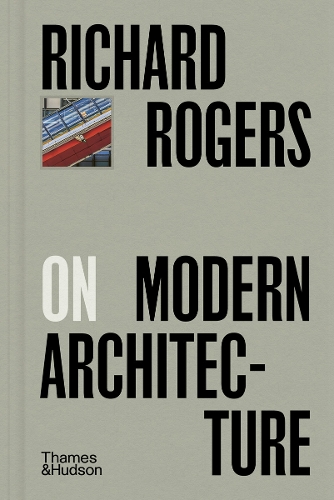
Richard Rogers on Modern Architecture
(Hardback)
Publishing Details
Richard Rogers on Modern Architecture
By (Author) Richard Rogers
Thames & Hudson Ltd
Thames & Hudson Ltd
1st May 2025
1st May 2025
United Kingdom
Classifications
General
Non Fiction
Physical Properties
Hardback
72
Width 116mm, Height 180mm
Description
'Thames & Hudson's new, affordable, covetable 'Pocket Perspectives': beautifully illustrated essays by canonical writers' Financial Times
A manifesto for the future of architectural practice and the necessity of good design to modern life, by renowned British architect Richard Rogers.
Written in what architect Richard Rogers regarded as a moment of crisis in modern architecture, this essay considers how the way we build - and live - might change for the better. Poor design, monotony and inhuman scale are, Roger argues, not the results of a lack of talent nor the failures of the Modern Movement, but of a surrender to exploitative economic systems and inconsiderate business interests.
Best known for his work on the Pompidou Centre in Paris, the European Court of Human Rights in Strasbourg and the Lloyd's building and Millennium Dome in London, Rogers was perhaps the most original and inventive architect of his time, and was a frequent commentator on the contemporary scene. As a practitioner, he was in the best position possible to appreciate how economic forces can create - or frustrate - good design. A succinct summary of his design philosophies, Richard Rogers on Modern Architecture continues to be a powerful manifesto.
Author Bio
Richard Rogers (1933-2021) was a British architect noted for his modernist and functionalist designs. Rogers was a winner of the RIBA Gold Medal, the Thomas Jefferson Medal, the RIBA Stirling Prize, the Minerva Medal and Pritzker Prize.
